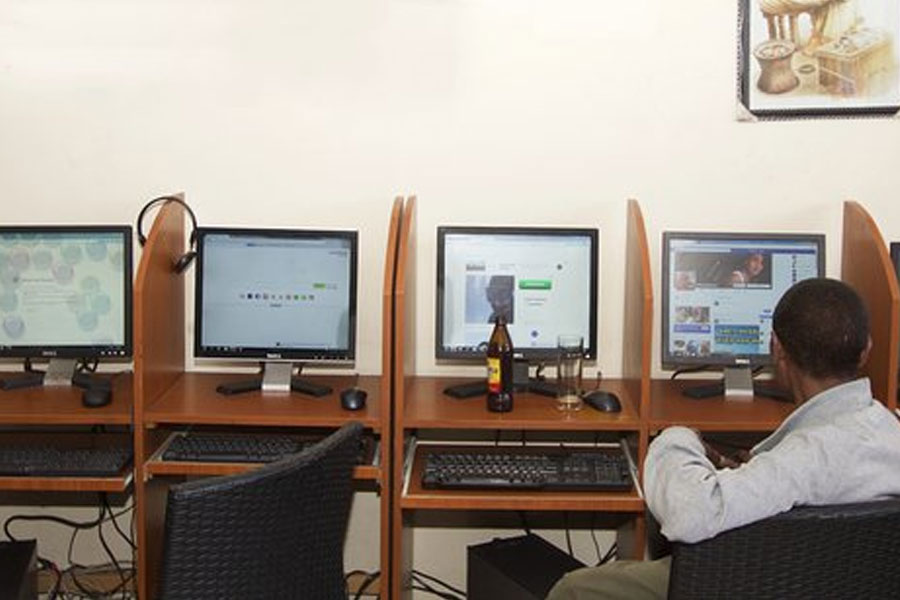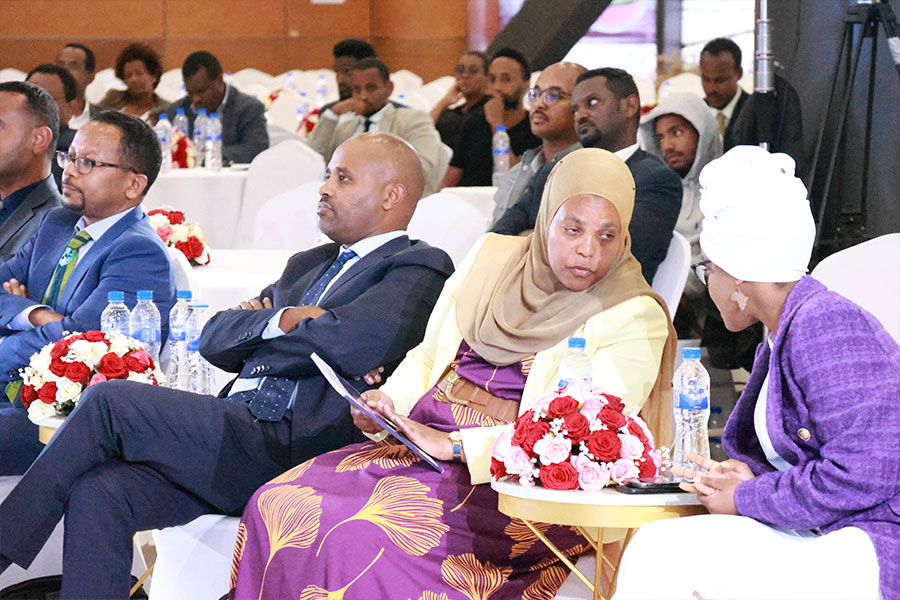
Fortune News | Sep 03,2022
A bill that requires the appointment of presidents through an internationally open competition after proving non-allegiance to political organizations was approved by Parliament last week. It also ushered in a new position entitled university chancellor to execute appointments of presidents, oversee charitable operations, and serve as high ambassador at the university.
It comes amidst advancing requirements for selective academic and administrative categories under the presidents of higher education institutions was put forth by the Ministry of Education last month.
Signed by Samuel Kifle (PhD), state minister for Education, the modalities presented by the Ministry cater for employees grouped under academic, technical and administrative support staff, while the academic category is restricted to the vice president, academic directors, college deans and their immediate subordinates.
While no immediate decision has been passed on working presidents of higher institutions, deputies with less than three months left will have to compete with new applicants to proceed with a second term, according to the letter.
Their reign is also capped under two terms, while their number is limited to three with specific responsibilities depending on the types of universities.
This reshuffling of employment structures falls within the current administration's sustained effort to reform several aspects of the country's education policy, including exit exams for university students for the first time this year and employing cost-effective solutions to human resources.
The operation manual suggests that one of the methods to cut down on costs will be using temporary employment contracts more frequently, especially for projects, usually up for grabs by academic staff within most of the campuses.
Yikoyalem Dessie (PhD), dean of the College of Educational & Behavioral Sciences at Addis Abeba University, remarked that reforms to appointments in higher education are a necessary development.
He suggested that a degree of localization in appointments within universities restricts the free flow of ideas necessary to foster a good environment.
"It had led to academic inbreeding," he said.
Yikoyalem cautions that the degree of intervention by the Ministry in terms of appointment should not go past vice presidents, instead allowing for organic developments.
He used the U.S. university system, which offers dean positions for people who bring in the highest grants, as an example to explain that this allows for experiences from different places to be interchanged on campuses.
In lieu of a number of students within the higher institution, all units within higher education providers under the Ministry with over 15,000 students will have one dean and two vice deans for student services and behavioural capacity building.
College units with less than 1,500 students, up to five departments and 100 teachers will be administrated by a single dean.
Yikoyalem recommends it would be wiser to calibrate based on the nature of the colleges and their level of output rather than on student size.
There are 50 universities in the country accommodating close to 50,000 staff members.
A rigorous list of all employment categories within state-owned higher institutions was sent by the Civil Service Commission to respective universities a month before this operation manual, along with revised housing allowances between 125pc and 380pc, was given to staff.
Members of academic staff within state-owned universities that average wages around 10,000 Br told Fortune that the prevailing trajectory within the Ministry points to a pushing out of academic staff from administrative positions.
A five-day strike was organized by elements within the Ethiopian University Teachers & Technical Staff Association a few months back in an effort to obtain higher wages and improved benefits packages. A 650 Br upgrade to the housing benefit package afforded to teachers currently at 1,170 Br appears to be one recent improvement.
The higher education proclamation stipulates that all working time of academic staff should be devoted to the institution of employment.
Lecturers are timid about the series of reforms taken by the Ministry as priorities should be elsewhere.
Damot Anteneh (PhD) from Debremarkos University suggests that the accommodation of teachers should be among the top priorities, highlighting that the "under-appreciation" of teachers could have unprecedented implications in cultivating competent human capital.
About 250,000 students are expected to take exit exams this year.
Damot fears that university exit exams scheduled in the upcoming months might yield results similar to the 97pc fail rate registered by high school graduates this year, as students from areas recovering from the conflict are underprepared.
"Years of modules were given in months," he told Fortune.
PUBLISHED ON
Apr 03,2023 [ VOL
24 , NO
1196]

Fortune News | Sep 03,2022

Fortune News | Mar 26,2022

Radar | Nov 07,2020

Fortune News | May 31,2025


Fortune News | Sep 09,2023

Fortune News | Nov 25,2023

Fortune News | May 09,2020

Radar | Mar 19,2022

Fortune News | Apr 15,2023

Dec 22 , 2024 . By TIZITA SHEWAFERAW
Charged with transforming colossal state-owned enterprises into modern and competitiv...

Aug 18 , 2024 . By AKSAH ITALO
Although predictable Yonas Zerihun's job in the ride-hailing service is not immune to...

Jul 28 , 2024 . By TIZITA SHEWAFERAW
Unhabitual, perhaps too many, Samuel Gebreyohannes, 38, used to occasionally enjoy a couple of beers at breakfast. However, he recently swit...

Jul 13 , 2024 . By AKSAH ITALO
Investors who rely on tractors, trucks, and field vehicles for commuting, transporting commodities, and f...

Oct 25 , 2025
The regulatory machinery is on overdrive. In only two years, no fewer than 35 new pro...

Oct 18 , 2025
The political establishment, notably the ruling party and its top brass, has become p...

Oct 11 , 2025
Ladislas Farago, a roving Associated Press (AP) correspondent, arrived in Ethiopia in...

Oct 4 , 2025
Eyob Tekalegn (PhD) had been in the Governor's chair for only weeks when, on Septembe...